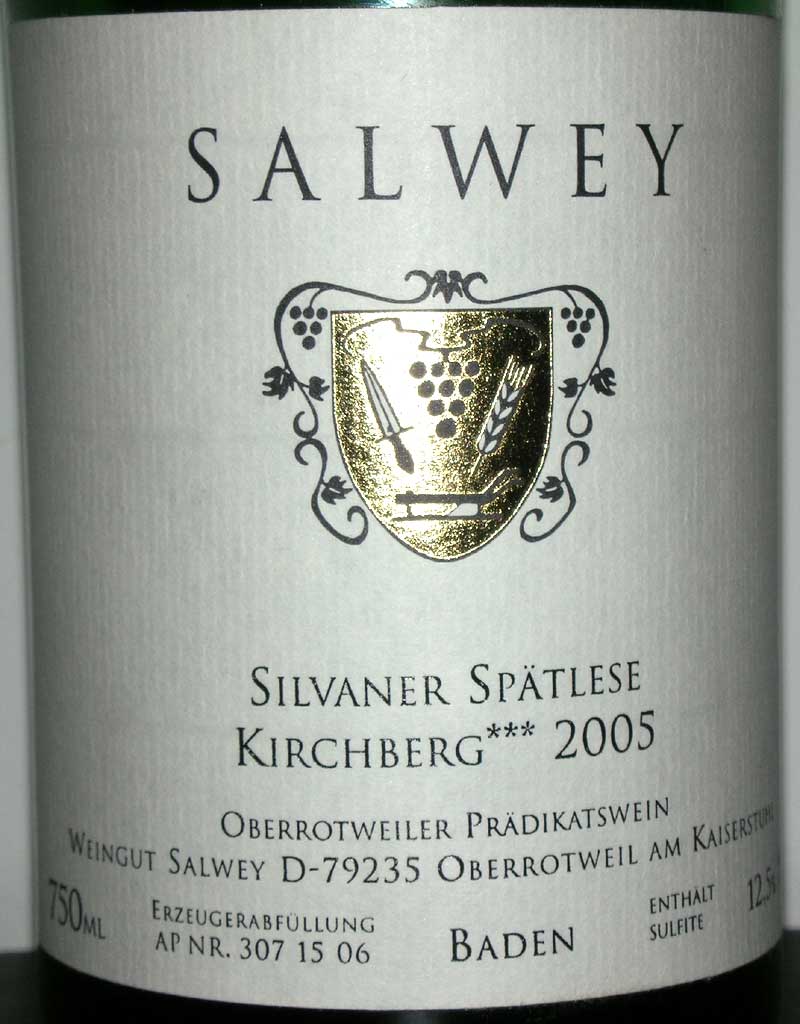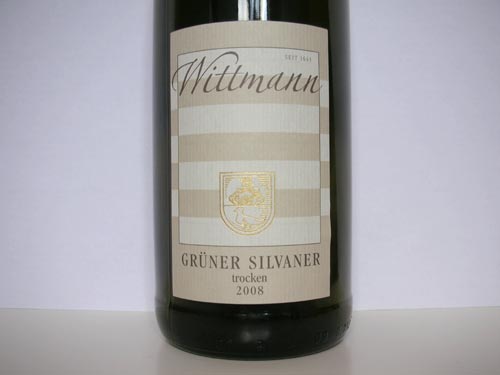Salwey, Silvaner Spätlese, Kirchberg *** 2005
 It is still 2009, the year of the Silvaner grape in Germany - and the Wine Rambler is of course drinking Silvaner. After a full committee meeting last Saturday enjoyed an outstanding Silvaner from Franconia, the London branch of the Wine Rambler jumped right back into Silvaner, this time with a more aged wine - another outstanding example of what a competent winemaker can do with this grape.
It is still 2009, the year of the Silvaner grape in Germany - and the Wine Rambler is of course drinking Silvaner. After a full committee meeting last Saturday enjoyed an outstanding Silvaner from Franconia, the London branch of the Wine Rambler jumped right back into Silvaner, this time with a more aged wine - another outstanding example of what a competent winemaker can do with this grape.

